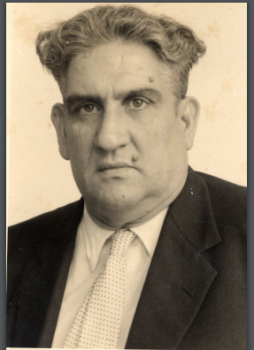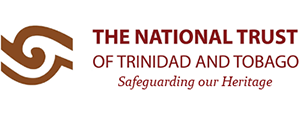The right to vote in Trinidad and Tobago was granted by the British Government as a result of hard work and activism by Trinbagonians. It was part of the 20th century anti-colonial movement. The right to vote is part of the long struggle for the right to govern ourselves, it is set in the context of poor West Indian colonies supporting Britain in two World Wars, the rise of Pan Africanism and the increased frustrations of the lowest classes. Poverty and labour issues lead to widespread unrest across the British West Indies in 1937, and the British colonial Government sent the Moyne Commission in 1938 to investigate the causes. The Moyne Commission made several recommendations regarding improving living and working conditions. Significantly it recommended that the franchise be extended but the outbreak of WW2 in 1939 meant that this was shelved as war was the main priority. The Report was tabled, and once again British West Indians signed up to go to war to fight for Britain. The men who fought in WW1 and WW2 however returned to the West Indies with a new perspective on the unfairness of colonial rule. The international pressure on Britain to decolonize after WW2 as well as pressure within the colonies led the British Government to slowly implement reforms in the British West Indies.
Universal Adult Suffrage was granted to Trinidad and Tobago in 1945. However, the age of eligible voters differed from the contemporary voting age. The franchise enabled men and women aged 21 and older to vote. This was a significant achievement because the right to vote was very limited prior to this. From 1925 to 1946 the franchise allowed men 21 years and older and women 30 years and older, who met certain property and income qualifications to vote. This was only about 6 % of the adult population (The Parliament of Trinidad and Tobago). This was done to ensure that only the upper class, and mostly upper class men could vote. There were very few eligible women because of the property and income qualifications on who could vote. 1946 was the first year that men and women could vote regardless of their income and property (The Parliament of Trinidad and Tobago).

List of Candidates by Constituency for the 1946 Election
Source: The Parliament of Trinidad and Tobago, http://www.ttparliament.org/documents/2429.pdf
There are several notable differences between the elections of 1946 and contemporary elections. For instance, private homes were used as polling stations, along with schools and public buildings. Another difference is the extent of the democracy. On July 1st, 1946 the election was held for the Legislative Council and on October 28th, 1946 an election was held for the County Council. Trinidad and Tobago was still a British colony and had a British Governor.
Moreover, in 1946, Tobago was considered as one county. Alphonso Philbert Theophilus James ran for Tobago and won a seat on the Legislative Council for Tubal Uriah Butler’s Party. Significantly, Tobago had the highest turnout of voters across the nation. Many Tobagonians came to Trinidad prior to the election to campaign (The Parliament of Trinidad and Tobago).
The 1946 election was also a landmark moment in the history of Trinidad and Tobago because this was the first time that a woman was nominated by the Governor for a seat on the Legislative Council. Audrey Layne Jeffers became the first woman to sit on the Legislative Council of Trinidad and Tobago. Her home, Briarend, still stands on Sweet Briar Road, St. Clair. It is a Listed Property of Interest by the National Trust of Trinidad and Tobago. You can read more about it here: https://nationaltrust.tt/home/location/audrey-jeffers-house/.
In addition to Jeffers, there were several other outstanding leaders who worked tirelessly to bring a voice to the disenfranchised lower classes. Muzumbo Lazare, Captain Arthur Cipriani, Tubal Uriah “Buzz” Butler, Elma Francois, Christina King, Chanka Maharaj and Adrian Cola Rienzi were some of the leaders of the anti-colonial movement. One leader, Albert “Bertie” Gomes stands out as he campaigned for Universal Adult Suffrage, arguing that it was the poorest persons who needed the right the vote. In the election 1946 he defeated Uriah Butler, as they both campaigned for the same constituency. He was outspoken on many issues and a champion of the underclass, the steelpan, calypso, the Shouter Baptists and more.

Picture of Albert Gomes
Source: The University of the West Indies:
https://uwispace.sta.uwi.edu/dspace/bitstream/handle/2139/9842/UWI-PIC-320.pdf?sequence=3&isAllowed=y
The right to vote was not granted overnight, it was part of a lengthy effort which involved many people from all walks of life. When it was granted by Britain, it was done so in stages and with restrictions. This movement evolved into calls for the right to have internal self-governance and then full independence. This is why we should appreciate the right to vote.
Author: Karishma Nanhu, Heritage Preservation and Research Officer
Sources
The Parliament of Trinidad and Tobago,
http://www.ttparliament.org/publications.php?mid=36&id=mr58BF8B
The Parliament of Trinidad and Tobago,
http://www.ttparliament.org/documents/2429.pdf
Parliament of Trinidad and Tobago, The Vote- Fact #1, https://www.youtube.com/watch?v=LNpcNwL5Kvc
Parliament of Trinidad and Tobago, Parliamentary Personalities- Albert Gomes, https://www.youtube.com/watch?v=CBYAet7VZqs
Parliament of Trinidad and Tobago, The Vote- Albert Gomes, https://www.youtube.com/watch?v=ifiUNCxBx6g
Institute for Gender and Development Studies, The UWI https://sta.uwi.edu/igds/20thanniversary/audreyjeffers.asp#:~:text=Audrey%20Layne%20Jeffers%20born%20in,most%20in%20need%20among%20them.
https://www.youtube.com/watch?v=5T516B6VwbQ
The University of the West Indies

